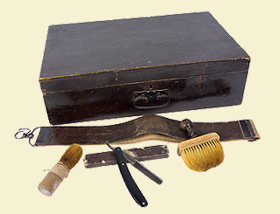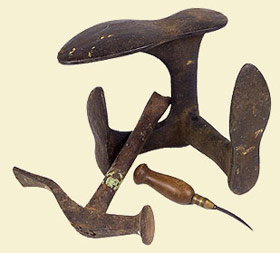Jobs for everyone
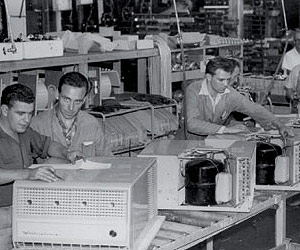
click to enlarge »
Dutch migrant Ferdi Boers, second left, as a leading hand in the air conditioning area at the Email factory, 1962.
Photo courtesy Ferdi Boers
For many years the focal point for hundreds of the migrants who came to live in Orange was the Emmco whitegoods factory (later known as Email). Opened in 1946 just three years before the first New Australians were sent to work there, its fortunes were inextricably bound with those of the migrants. As the factory prospered, so did the migrants; when it laid off workers through industrial action or shortages of raw materials, migrants were among the worst affected. Emmco and its adjacent plant Elcon, both part of the Email Group, produced in the early days various whitegoods from refrigerators to washing machines, electric fans and kitchen ranges.
Tony Siemer was one of a number of highly skilled
German toolmakers who emigrated to Australia
to take up employment at the Emmco factory in
Orange:
The first group of migrants to work at Emmco were twenty-six displaced men who arrived in Orange on September 7, 1949. They had been staying temporarily at the Wallgrove Migrant Camp west of Sydney. Most were from the Baltic countries and Poland.
"I started work at Emmco in January 1953 as a toolmaker and I worked
there for 30 years. I was among a group of skilled German toolmakers
making plastic moulds for refrigerators."
- Tony Siemer
- Tony Siemer
The first group of migrants to work at Emmco were twenty-six displaced men who arrived in Orange on September 7, 1949. They had been staying temporarily at the Wallgrove Migrant Camp west of Sydney. Most were from the Baltic countries and Poland.
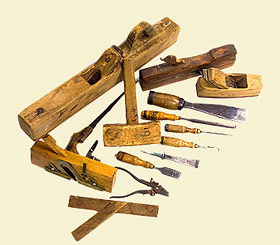
Carpenter's tools brought from Holland by
Bill Kloosterman in 1951.
Until 1949 the Dutch Government would not allow tradesmen to migrate...
more info »
more info »
Recently arrived from the chaos of postwar Europe, the men
probably did not have great expectations. It was just as well,
because there had been no time to build suitable accommodation
for them and the best that could be managed was hastily
erected two-man tents near the railway line adjacent to the
factory at the southern end of Edward Street, not far from
the stock
saleyards. The men were given instructions in English and
German about their jobs and the tent accommodation, which, they
were assured, was only temporary. In fact, a Commonwealth
hostel was not built in Orange until February 1952 and hundreds
of migrant men lived in the tents, summer and winter, for many
months before finding better accommodation in the city.
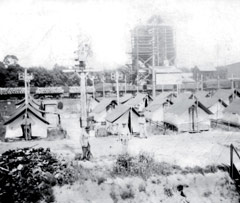
view full sized photo »
'Tent City', where many of the early migrants lived adjacent to the Emmco factory while they awaited more suitable accommodation in Orange.
Photo courtesy Wendy Bondaruk
Other migrants found work at Bloomfield Hospital, Orange
Base Hospital, Wangarrie Sawmill, the Woollen Mills, the railways,
and district orchards. Some started their own businesses, such as cafes and shops.


